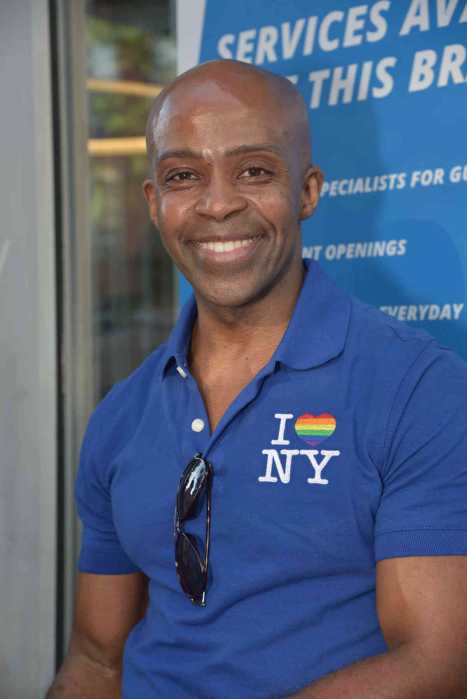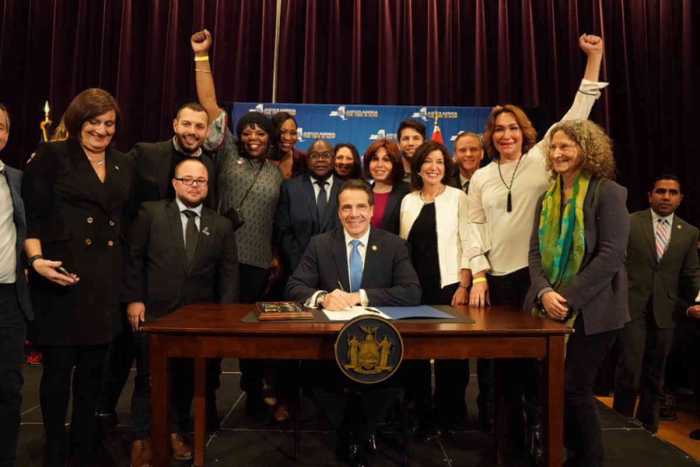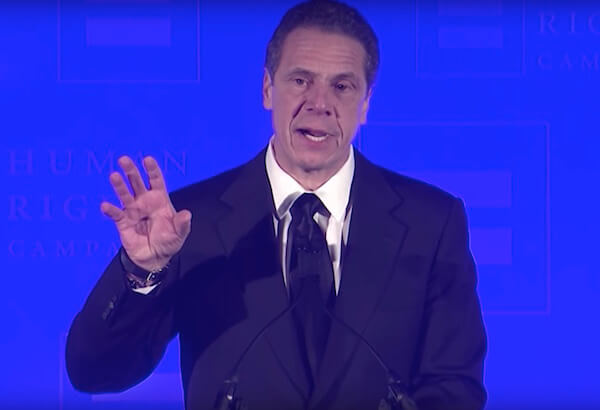Transgender rights leader Mara Keisling says the road to House victory is uncertain, but that a successful grassroots effort can be mounted. | NATIONAL CENTER FOR TRANSGENDER EQUALITY
In a 64-32 vote on the afternoon of November 7, the United States Senate passed the Employment Non-Discrimination Act (ENDA), which provides protections against bias in the workplace on the basis of both sexual orientation and gender identity.
LGBT rights legislation has stalled in the US Congress since New York Representatives Ed Koch and Bella Abzug first proposed a comprehensive gay rights bill in 1974. Since the early ‘90s, advocates have pursued a more modest effort focused solely on employment protections.
This measure has succeeded only once before –– in 2007, when the House, under Democratic leadership, passed a version of ENDA that provided no relief for transgender workers. That bill did not get a vote in the Senate, and no action was taken on ENDA in the 2009-2010 session of Congress, when Democrats controlled both houses and President Barack Obama was prepared to sign the legislation.
Attention shifts to intransigent Republican House
Earlier in the week, Republican House Speaker John Boehner’s office released a statement saying, “The speaker believes this legislation will increase frivolous litigation and cost American jobs, especially small business jobs.”
California’s Nancy Pelosi, the minority leader, responding by saying the sort of public pressure that last year forced the House’s GOP leadership to allow a vote on reauthorization of the Violence Against Women’s Act (VAWA), which included specific protections for members of the LGBT community, might be a route to victory on ENDA, as well.
With 96 members of the Senate voting, the measure attracted all 54 Democrats who were present and 10 Republicans. GOP co-sponsors Susan Collins of Maine and Mark Kirk of Illinois were joined by New Hampshire’s Kelly Ayotte, Arizona’s Jeff Flake and John McCain, Utah’s Orrin Hatch, Nevada’s Dean Heller, Alaska’s Lisa Murkowski, Ohio’s Rob Portman, and Pennsylvania’s Pat Toomey. Among Democrats, Bob Casey, a Pennsylanian who supports ENDA, was not present for the vote.
“Today, a bipartisan majority in the Senate took another important step in this journey by passing the Employment Non-Discrimination Act, which would help end the injustice of our fellow Americans being denied a job or fired just because they are lesbian, gay, bisexual, or transgender,” Obama said in a press statement immediately after the vote. “Today’s victory is a tribute to all those who fought for this progress ever since a similar bill was introduced after the Stonewall riots more than three decades ago.”
29 states have no gay rights laws; 33, including New York, lack transgender protections
The successful vote on ENDA followed shortly on the heels of the Senate’s rejection of an amendment by Toomey aimed at broadening the universe of employers that could claim a religious exemption from the legislation to potentially include for-profit businesses.
In a statement on the amendment, Fred Sainz, a spokesman for the Human Rights Campaign (HRC), said that it “undermines core American values, could cause harm and increase litigation.” Ian Thompson, a legislative representative of the American Civil Liberties Union (ACLU) in Washington, told Gay City News that Toomey’s amendment “would create a dangerous license to discriminate. It is completely unacceptable.”
Toomey was defeated by a 55-43 margin, with Collins, Kirk, and Murkowski providing the only Republican votes to hold the line on religious exemptions some LGBT advocates argued were already too broad. Democrats Joe Donnelly of Indiana and Mark Pryor of Arkansas sided with Toomey and the rest of the Republicans in the effort to weaken the bill.
One day before the final ENDA action, the Senate, on a voice vote, accepted an amendment from Republicans Portman and Ayotte that would prevent the federal government or state and local governments receiving federal money from penalizing a non-profit organization exercising its religious exemption under ENDA by withholding the right to participate in or receive benefits under programs they administer.
HRC and the ACLU both concluded this amendment was not necessary, but also agreed it posed no risk that state and local government LGBT rights protections would, in general terms, be pre-empted. In an HRC memorandum about the amendment obtained by Gay City News, the group wrote, “This amendment would prevent the Department of Housing and Urban Development, for example, from refusing to allow an organization that uses the ENDA religious exemption from participating in a grant program to provide housing for homeless individuals. However, it does not change the fact that, by regulation, HUD grantees cannot discriminate in those programs based on sexual orientation and gender identity.”
One Senate source told the newspaper that the Republicans’ concern related to potential “retaliation” –– for example, a local zoning board denying approval to a facility operated by an organization claiming a religious exemption based on its use of that exemption. That organization, however, would still be liable for violating provisions of the local government’s LGBT rights ordinances.
Though LGBT advocacy groups were united in supporting passage of ENDA in its current form, the ACLU was joined by Lambda Legal, the National Center for Lesbian Rights, and the Transgender Law Center in a statement this past spring warning that the current religious exemption language provides religiously affiliated groups, including hospitals and universities, with considerably more leeway to discriminate than is customary in civil rights legislation.
In most LGBT nondiscrimination legislation enacted across the country, religious organizations directly related to faith and worship activities are free to apply a religious test for employment. Organizations such as hospitals, however, which act as public accommodations serving the population at large, typically cannot claim a religious exemption except for faith-related activities.
Tico Almeida, currently the head of Freedom to Work who, in his former role as co-counsel on the House Education and Labor Committee, authored the religious exemption language, has defended it, arguing it was a “cut and paste” from Title VII provisions of the 1964 Civil Rights Act. At a forum on ENDA in New York in September, however, he conceded that Catholic Charities, a large nationwide non-profit that is a major social service provider and employer in many cities, would be exempt from ENDA’s provisions.
ACLU’s Thompson said his group and others concerned about the breadth of the exemption would likely not press this issue unless the House fails to approve the bill before next year’s election and advocates review their options again in January 2015. In his view, ENDA is likely to still be an open issue at that time.
In a fundraising appeal after the Senate vote aimed at pushing for House action, Mara Keisling, the executive director of the National Center for Transgender Equality, wrote, “Today's vote marks the first time a chamber of Congress has voted on a gender identity-inclusive Employment Non-Discrimination Act… But this bill isn't law yet. A path to victory in the House isn't all that clear, but we believe with enough resources on hand, we can mobilize an even larger grassroots effort that can deliver a vote on ENDA in the House.”
In a statement from HRC, its president, Chad Griffin, said, “Today, a strong bipartisan majority of the United States Senate made history by standing up for a fundamental American truth… We firmly believe that if the House of Representative were freed by Speaker John Boehner to vote its conscience, this bill could pass immediately. It’s unconscionable that any one person would stand in the way of this crucial piece of the civil rights puzzle.”
New York’s senior senator, Democrat Chuck Schumer, who played a key role earlier in the week in negotiating agreement with several Republicans needed to reach the 60 votes to proceed to a floor debate on the bill, issued a statement saying, “Today, the arc of history –– that Martin Luther King Jr. spoke about –– bent again towards justice. It was a long time coming, but Democrats and Republicans of good faith came together, did the right thing, and voted to end discrimination in the workplace. Now it is time for the House to act.”



































